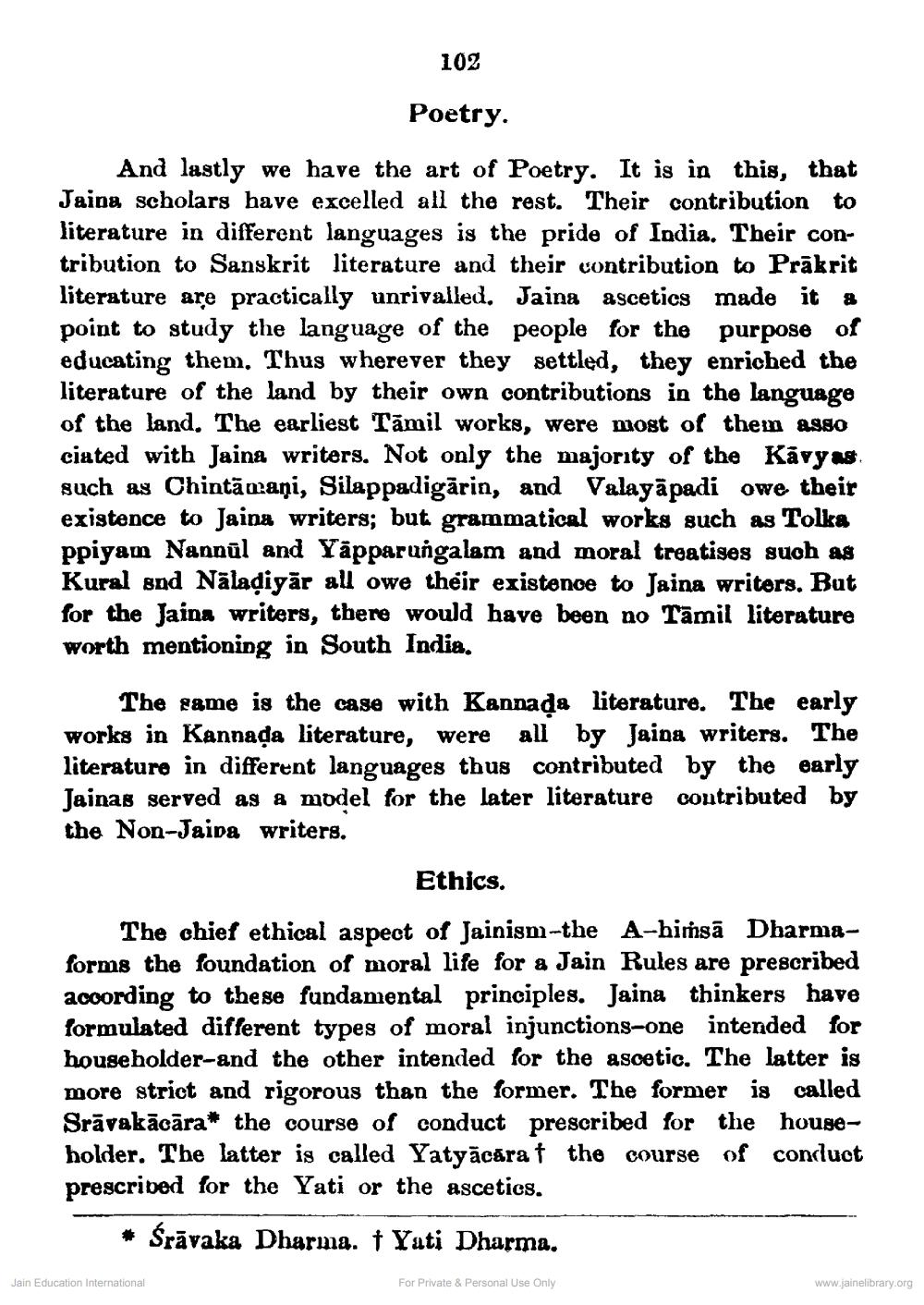________________
102
Poetry.
And lastly we have the art of Poetry. It is in this, that Jaing scholars have excelled all the rest. Their contribution to literature in different languages is the pride of India. Their contribution to Sanskrit literature and their contribution to Prākrit literature are practically unrivalled. Jaina ascetics made it a point to study the language of the people for the purpose of educating them. Thus wherever they settled, they enriched the literature of the land by their own contributions in the language of the land. The earliest Tāmil works, were most of them asso ciated with Jaina writers. Not only the majority of the Kavyast such as Chintamani, Silappadigârin, and Valayāpadi owe their existence to Jaina writers; but grammatical works such as Tolka ppiyam Nannūl and Yapparungalam and moral treatises such as Kural and Nāladiyār all owe their existence to Jaina writers. But for the Jaina writers, there would have been no Tāmil literature worth mentioning in South India.
The same is the case with Kannada literature. The early works in Kannada literature, were all by Jaina writers. The literature in different languages thus contributed by the early Jainas served as a model for the later literature contributed by the Non-Jaipa writers.
Ethics.
The chief ethical aspect of Jainism--the A-hiṁsā Dharmaforms the foundation of moral life for a Jain Rules are prescribed according to these fundamental principles. Jaina thinkers have formulated different types of moral injunctions-one intended for householder-and the other intended for the ascetic. The latter is more strict and rigorous than the former. The former is called Srāvakācāra* the course of conduct prescribed for the householder. The latter is called Yatyācāra f the course of concluot prescribed for the Yati or the ascetics.
* Śrāvaka Dharma. † Yati Dharma.
Jain Education International
For Private & Personal Use Only
www.jainelibrary.org




